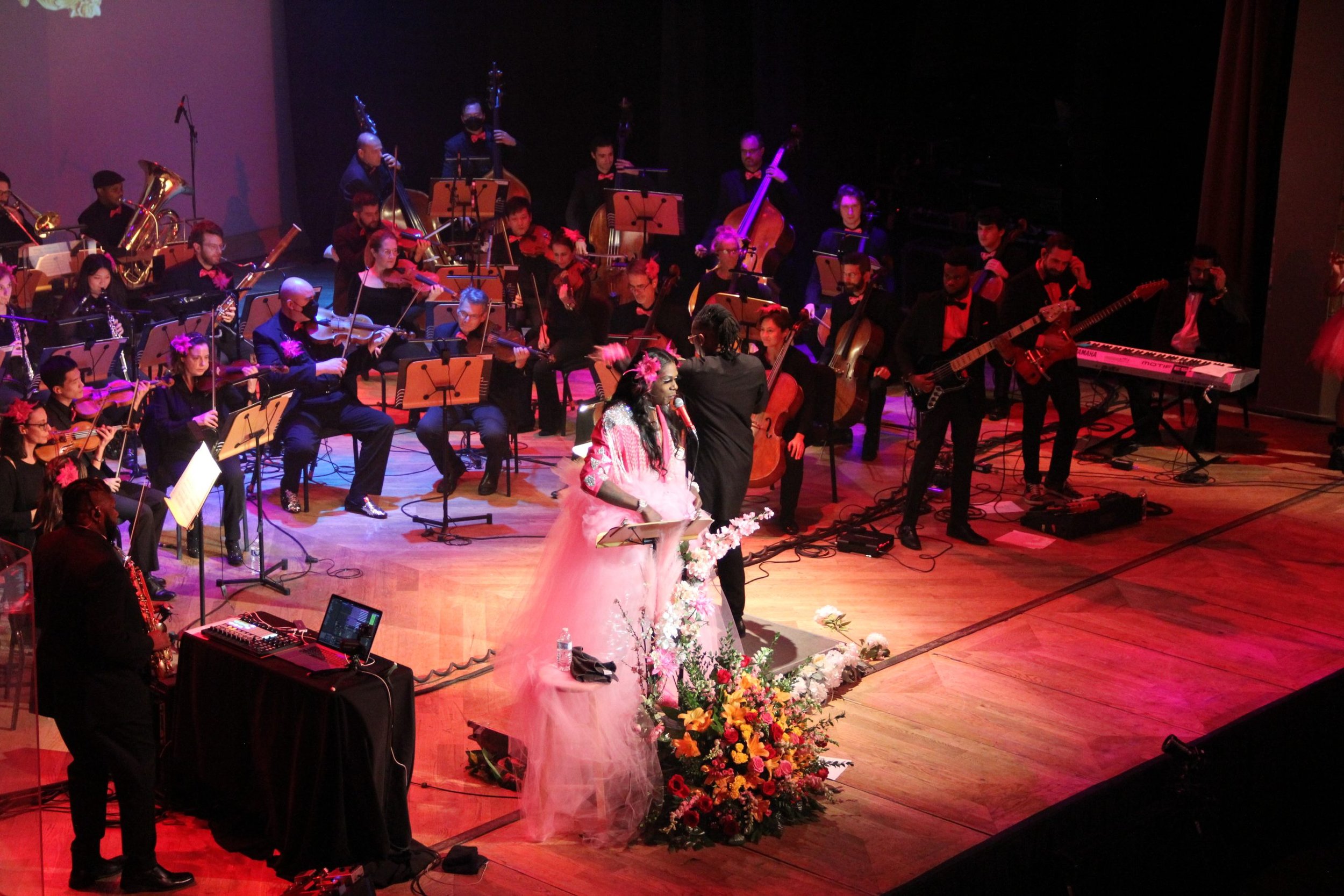Bounce Finds a Home in Delaware

Delaware R&B singer Raqi Lilly has taken to bounce, influenced heavily by Big Freedia and Freedia's Fuse TV show.
Late last year, R&B singer Raqi Lilly visited New Orleans to help scratch her bounce itch. The Delaware native had already recorded a version of Stromae’s “Papaoutai” that makes plain her affection for bounce.
Bounce is often thought to be a purely New Orleans’ experience, and I’ve seen out-of-town audiences treat Big Freedia’s show and music like pure spectacle. I’ve also spoken to DJs who’ve had audiences in other cities ask for bounce but not know what to do with it when it’s played. Because of that, I was interested in Lilly’s relationship to bounce. We talked about it via email
What brought you to New Orleans?
I recorded the song in Delaware, but the song was inspired by Dawn Richards’ bounce mix of “James Dean.”
I came to New Orleans because I have researched so much about the city but had never been. When my job provided a business trip, I wanted to take advantage of being in the city. I already had my food spots I wanted to hit and literally went to every spot Big Freedia said were must-sees.
Did the interest in bounce that I hear in “Papaoutai” predate your trip to New Orleans, or was it a product of coming here?
The interest in bounce definitely predated my trip. I would always hear bounce music, and it reminded me of Delaware swag music. But I didn’t understand that I was listening to bounce.
It wasn’t until watching Big Freedia on Fuse that I started to understand the culture of bounce a bit more. Actually, my first house party and first time dancing with a guy was to “Hot Girl.” (laugh) Cash Money’s original sound stemmed from bounce. I’m still very new to the genre but seriously love it.
Who was the person who introduced you to bounce, and who were the artists or tracks that made an impression on you?
Big Freedia was definitely the greatest influence. It wasn’t until watching the TV show that I began to learn what bounce really is.
I’m obsessed with “Explode.” I also really love Denisia’s bounce mix to Adele’s “Hello.” I didn’t hear it until I visited New Orleans, but seriously, I kept replaying it over and over again.
What drew you to bounce?
I’ve always really loved music that makes you move your hips. I love reggae and Afrobeat. I think the dancing that is associated with these styles of music is often portrayed as vile or nasty. It’s borderline body-shaming the Black woman for having thick legs, thighs and butts (although God forgot to give me a booty!). It’s shaming the gay Black men who face -isms on all sides.
I love the idea of music that celebrates curves and movement. I also love that bounce as well as reggae and Afrobeat still feel precious. That feel like home for those of the African Diaspora. They aren’t styles that are exploited by the mainstream and that to me is beautiful. Bounce reminds me of letting your hair down and releasing those inhibitions.
What were the challenges in making it and your sound work together?
Well Stromae’s “Papaoutai” is a song I’ve been itching to cover for a long time, so when it came time to fuse the cover with bounce, it was magic. I kept hearing the sound in my heart and went with it.
As far as fusing bounce with my sound, I think the hardest part was my chill Delaware sound. I love singing smooth and jazzy and don’t have a NOLA accent, so I didn’t want to sound like someone that was trying to be something I’m not.
At the same time, I wanted true bounce fans to like it. My producer, Giz, was really phenomenal in helping me find the balance.
What kind of response have you got to your take on bounce outside New Orleans?
The track has had an amazing response! Every DJ that has played it from New York to Miami has really liked it. I had big responses from my hometown. I was super excited when I saw a girl on Instagram jamming out to it on the radio. Ladies want to have a song they can shake to, and this song definitely delivers that.






